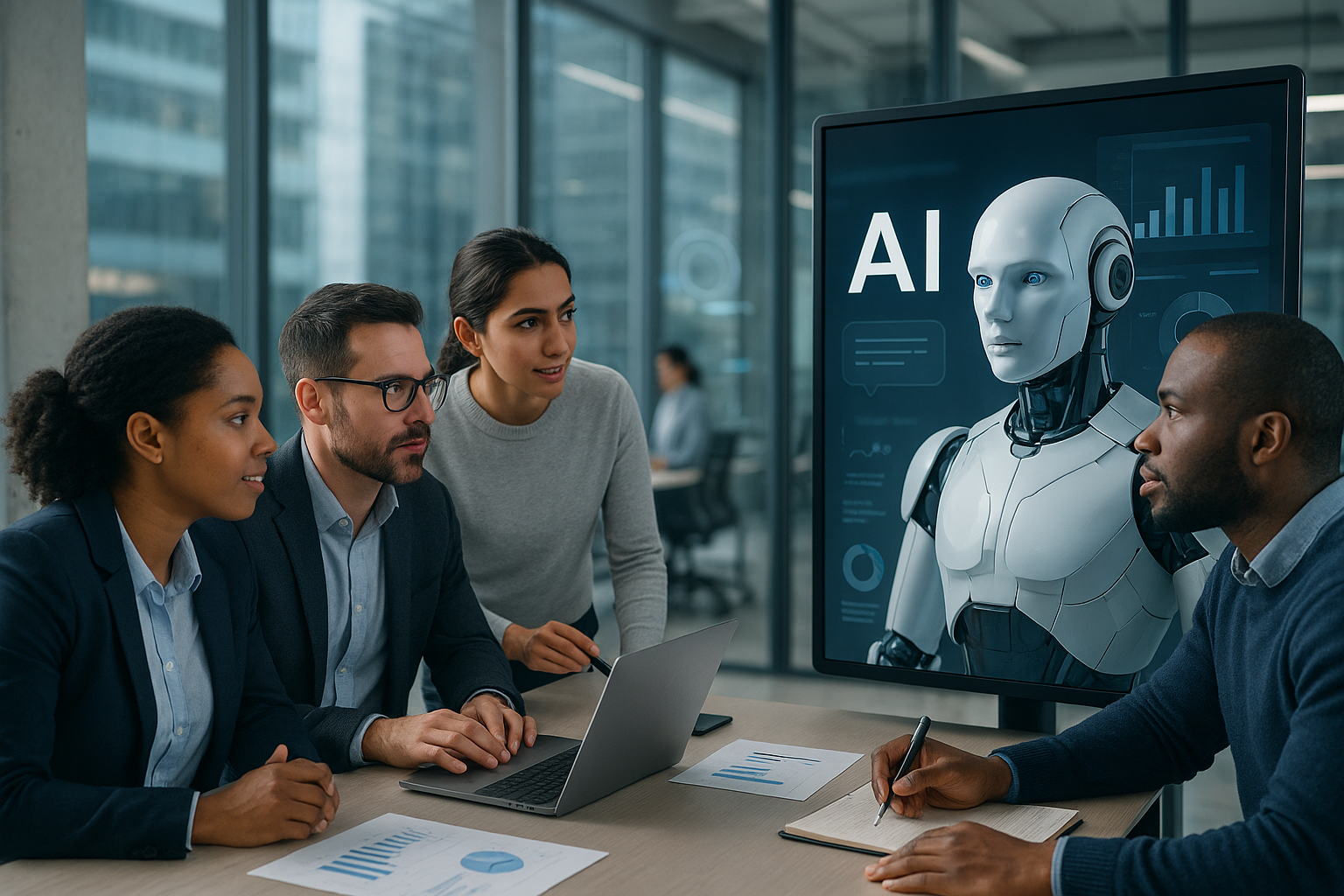Artificial intelligence (AI) is no longer a futuristic concept it’s already transforming how we work. In 2025, AI is not just a competitive advantage; it’s becoming a fundamental component of business operations across industries.
From customer service automation to advanced data analysis, AI is helping companies streamline processes, reduce costs, and boost productivity. But while the potential is massive, it also comes with new challenges that every business leader should understand.
1. AI Is Enhancing, Not Replacing, Human Talent
One of the biggest misconceptions about AI is that it’s here to take jobs. In reality, AI is most powerful when used to augment human capabilities. Repetitive tasks like data entry, scheduling, and report generation can be automated, freeing employees to focus on creative, strategic, and high-value work.
Leaders must view AI not as a replacement for people, but as a partner one that enhances decision-making, reduces workload, and improves accuracy.
2. Data Is Your Most Valuable Asset
AI systems learn from data. That means the quality, structure, and accessibility of your company’s data will directly impact how effective AI can be. Businesses in 2025 must treat data as a critical resource, ensuring it’s clean, well-organized, and ethically sourced.
Investing in data infrastructure from storage to privacy safeguards is no longer optional. It’s a requirement for any company looking to benefit from AI-powered insights.
3. Ethics and Transparency Are Crucial
AI introduces serious ethical concerns: bias in algorithms, surveillance risks, and lack of transparency in automated decisions. Regulators and consumers alike are demanding accountability.
Business leaders need to prioritize ethical AI, which includes understanding how algorithms make decisions, monitoring outcomes, and being transparent with customers and employees about AI’s role in their processes.
4. AI Skills Are the New Competitive Edge
To lead in an AI-driven world, businesses need more than just tools they need talent. Upskilling current employees and hiring professionals with AI literacy will be key to successful integration.
This doesn’t mean everyone has to become a programmer, but teams should understand the basics of how AI works and how to work alongside it effectively.
Final Thoughts
AI in the workplace is not a question of “if”, but “how”. In 2025, the companies that thrive will be those that use AI thoughtfully to empower people, protect data, and promote transparency.
For business leaders, the challenge is clear: adapt, learn, and lead with responsibility. The future of work is already here and it’s powered by intelligence.







